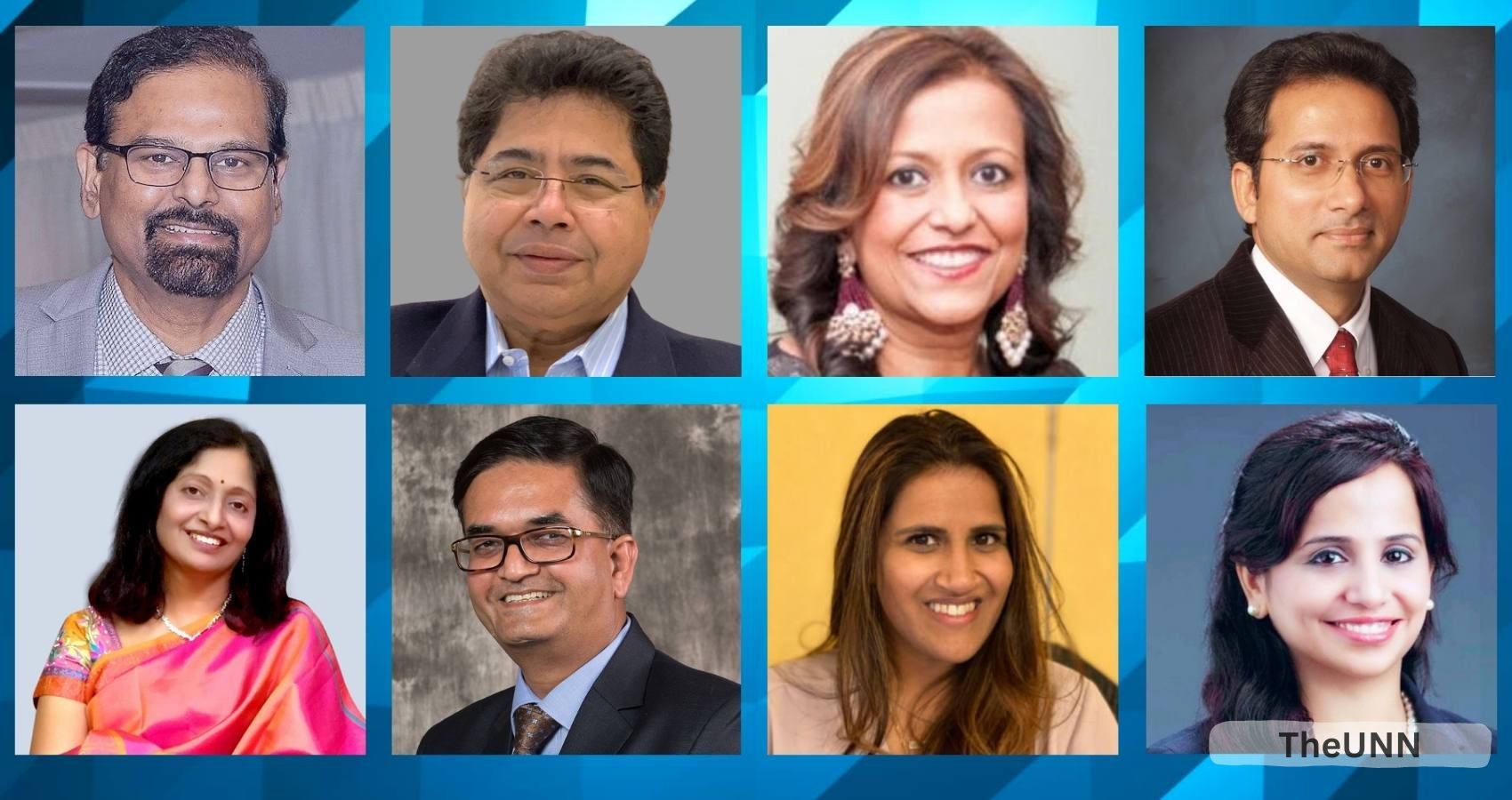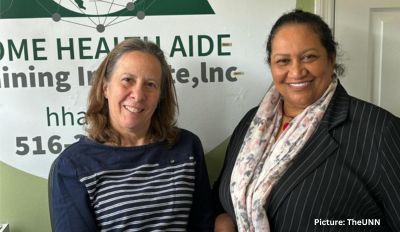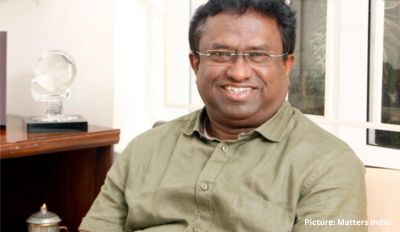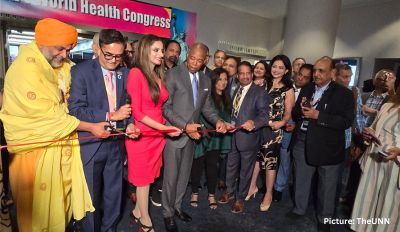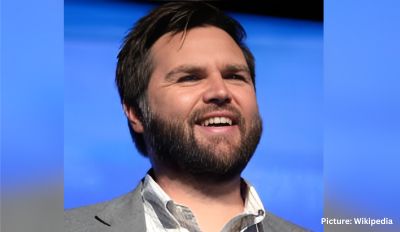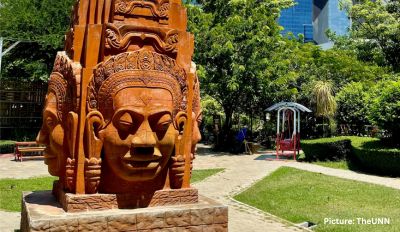The AAPI leader highlights need for healthcare equity, diversity and inclusion as important goals.
By Aziz Haniffa
 Dr. Ravindranath “Ravi” Kolli assumed charge as the 41st president of the American Association of Physicians of Indian Origin in at the organization’s annual convention in San Antonio last June. Previously, he has served as the vice president and secretary of AAPI.
Dr. Ravindranath “Ravi” Kolli assumed charge as the 41st president of the American Association of Physicians of Indian Origin in at the organization’s annual convention in San Antonio last June. Previously, he has served as the vice president and secretary of AAPI.
A board-certified psychiatrist with qualifications in addiction, forensic and geriatric psychiatry, Dr. Kolli currently serves as the Psychiatric Medical Director at SPHS Behavioral Health in Monessen, PA. He earned his MBBS degree from Rangaraya Medical College in Kakinada, Andhra Pradesh, in 1982, and MD from St. Francis Medical Center in the United States in 1992.
In a recent interview with Aziz Haniffa, former Executive Editor of India Abroad, Dr. Kolli spoke about his agenda for AAPI, the organization’s role in shaping healthcare policy and its activities in India, and mental health issues within the physicians’ community, among other topics. The interview has been edited for clarity.
Read: 2023 AAPI Global Health Summit to be held in Visakhapatnam, India (December 27, 2022)
Aziz Haniffa: Dr. Kolli, first and foremost, congratulations on your ascending to the AAPI presidency. You took over AAPI at a very seminal time, in the post-Covid environment. A lot of changes have taken place in the healthcare industry. What are your key priorities in terms of growing AAPI, which is arguably the most influential and the most powerful international medical organization today, and also in terms of shaping healthcare policy? How is AAPI is going to be a catalyst in the shaping of policy in the healthcare field?
Dr. Ravi Kolli: Thank you very much, Aziz. Covid has been an opportunity as well as a challenge. And AAPI and Indian American physicians have risen to the occasion both here in the United States and in India, serving their communities at their own risk and personal sacrifice, even risking lives. We helped India as well, when there was so much confusion and lack of awareness about the pandemic, explaining how to deal with it. A lot of our doctors spontaneously reached out to India, providing treatment, setting up telemedicine, clinics and also offering material resources that they were like lacking. We were able to undertake and provide services and support when they needed. And we are really blessed to be able to do that.
And as far as new and ongoing challenges, we always have to be eternally vigilant and continue our battles to have policies that help healthcare globally, as well as domestically here We need to work for a system that is more equitable. Healthcare equity is a big thing now. Diversity, equity and inclusion, these are important goals. We need to continue work on that.
Physician wellness is another important aspect for my turn. As a psychiatrist, I have been focusing on that. [Recently,] we had seminar on suicide prevention seminar. It was very well received. I spoke about the suicide rate and suicide risk in physicians. We need to work on physician wellness, as the important component of the quadruple aim of improving healthcare, experience, as well reducing the cost of care. So, we have lot of work ahead, and we are up to the challenge. Our members are very smart, very hard working, very well connected, and very successful. They have a lot of idea. We are using those ideas and energies in one forum, in multiple ways — so that we are more effective and more impactful.
Read: AAPI to celebrate India Day on Capitol Hill (August 30, 2022)
You’ve been a board-certified psychiatrist for many years. You have specialized in all facets of psychiatry, including depression and suicide. I know that is going to be a major priority for you because post Covid that is the major issue we are dealing with. What are some of the ways you are going to attack this problem and attack this challenge? Every AAPI president comes with the priorities that are very general to all of AAPI, but there are people like you who are specialists in certain areas who then pick out an avenue and then go full steam ahead of that.
The time has come to address the physician wellness head on. The stigma and barriers that keep physician from seeking help need to be addressed much more. It is being addressed, but I think we need to be more vocal about it, especially in our community, which has cultural inhibition as well as professional fears that are kind of self-imposed. At times we don’t seek Help. We need to call it out and make people aware. We are all in it together, and it’s okay not to be well sometimes and seek help. There’s no harm in it, but we need to make it easy for them to access help. So, we need to continue the education part and the stigma part. As psychiatrists, obviously we see the suffering. It’s a longer process of healing sometimes—not just a one-time encounter. We are trying to help by reaching out to members anonymously to see if they are needing help. Sometimes, within the community they may not want to reach out to their own colleagues. May be setting a helpline dedicated to Indian physicians can be done within the system legally. We are looking at such a system to address physicians’ wellness.
Read: AAPI to continue efforts for preventive healthcare in India (January 8, 2022)
During the early years, besides fighting discrimination, AAPI was also very much involved in alleviating problems in India, such as poverty and health disparities. Its charitable foundation was set up for that purpose. It seems to be going pretty well. What are you doing in terms of addressing the problems in India?
The charitable foundation has been around for 30 years. It has been supported by AAPI members and AAPI itself, with seed money and funding, and all that. It has its own structure. They have done good work in India, like setting up clinics, delivering services locally. But we want to have a broader vision of reaching out to bigger number of people in a systematic way, rather than in a scattered way. We are working on more structured, systematic, impactful and sustainable programs.
One of the initiatives we came up with last year was “Adopt a Village.” To commemorate the 75th anniversary of the Indian Independence, we came up with this initiative to adopt 75 villages through sponsorships from AAPI members. We did the first phase, adopting 50 villages in states such as Gujrat, Karnataka, Himachal Pradesh and Telangana. We reached out to 50 villages, and we screened 100 to 200 villagers in the rural areas for basic healthcare concerns like diabetes, kidney diseases, anemia, high blood pressure, by doing blood work and physical assessment. We created a database, identifying patients and connected them with local physicians, giving some feedback. In the next phase, we are envisioning to provide continuous services to them through teleclinics and in-person clinics through local partnerships. That’s a long-term ambitious aspiration and goal we have. Hopefully with the members’ support and showing them results and healing people and making changes in their lives, it will continue to grow and grow.
Read: Women leaders share their inspirational stories at AAPI Forum (January 26, 2022)
Unlike the bad old days, when organizations like the American Medical Association, the group that represent organized medicine in the United States, was very condescending toward AAPI, especially during its formative years. It changed in the last 15 20 years, with AMA presidents attending AAPI Conventions. AMA has had its first International Medical Graduate cell. A lot of AAPI members have gone on to hold senior positions in the AMA. My friend Dr. Bobby Mukkamala was elected to the AMA Board of Trustees a few years ago. The Genex is also very much involved in the AMA. Now you have very good relationship with the AMA and other major medical organizations. How do you hope to work with others to make sure that it is not just the AMA that will be shaping health policies but AAPI will also have a very important role to play in then, in conjunction with the administration and the Department of Health and Human Services?
You said it right: the AMA had a different attitude at the beginning; they had their own professional agenda. But that has changed. Now the AMA is very receptive to and very respectful to our presence. They have found synergy with AAPI. As you pointed out, a lot of AMA presidents have been at our conventions. Last year, at our convention, their current president was there on all three days, that’s what I was told. He was very engaged and happy to mingle with us. His agenda is also physician wellness and work on common goals. We are on the same path and have the same goals. And like you said, Dr. Bobby Mukkamala was on the AMA board. Like his father, he has always been very engaged with AAPI. So, AMA recognizes the values, the hard work and contributions of Indian American doctors. We paid our dues and won the respect. I think we have a seat at the table now, not on the menu, anymore. We’re at the table, not on the table. We reached out to the ACP (American College of Physicians) last year when [Indian American] Dr. George Abraham was the president. We had a constructive engagement with them. We are reaching out to the American Medical Women’s Association also. We are building bridges and continuing our collaboration with [major mainstream groups] on common themes like patient care, equity, diversity and inclusion. We have common goals on trade-related issues such as Medicare funding, graduate medical education funding and immigration.
Read: AAPI women’s panel hosts conference on domestic violence (October 19, 2021)
AAPI always boasts with a sense of pride as it represents 75,000 Indian American physicians in the country. But it has always struggled in membership drive. I always compare it with the Asian American Hotel Owners Association, AAHOA. But of course, AAHOA has an advantage, as a vast majority of its members are Gujaratis. They are very homogeneous, unlike AAPI, whose members include physicians across India and because of that Indian regional politics are a factor. How are you going to grow AAPI into a force with big membership? I know off late you have roped in the Gen X, Gen Z and a few millennials as members. But how are you going to grow AAPI into a really potent force and produce numbers?
Like I said in my inaugural speech our shakti (strength) is in our sankhya (numbers). Our strength is in our numbers and member. So we want to reach out to everyone. Our founding fathers were a very inclusive and diverse group, and want to bring that culture back where everybody is included and respected. I don’t personally see as any different than anyone else. That’s my personal feeling. But I want that to be the norm than exception. That’s a challenge, but that’s a strength as well. We need to be inclusive, and we are trying to be that. Sometimes it takes the openness to bring people into the organization. That’s my goal and my job. And you’re right that there is some politics, but it doesn’t have to be divisive. We can compete with each other in a productive way, without being divisive, and make a difference. People can use identity politics for short-term gains. It can cause a lot of damage. We need to discourage it. We need leaders to heal the wounds and build the bridges.
AAPI and Indian American physicians have been the brand of the community since the passage of the landmark Immigration and Nationality Act of 1965. After the landmark immigration bill in 1965. They became the brand of the South Asian American immigrant community, much before the hoteliers and the techies established themselves. But an unfortunate manifestation in recent years has been the number of accusations against Indian American doctors regarding medical fraud. Of course, AAPI can’t be held responsible for that because these are individuals who have made their own decisions. How do you try to make sure that the brand of AAPI is not contaminated?
The brand AAPI is what we cherish. I tell every member and every leader of AAPI that they are the ambassador of AAPI and their job is to protect, enhance and project AAPI’s image and brand in a realistic way. Like you said, personal failures cannot damage AAPI’s name. Even those people who are caught are not always been criminal in their intent. Sometimes they get caught up in the system which is sometimes convoluted. Nobody knows what the rules are and it keep changing. I think some of it is lack of awareness, some of it is lack of using the resources properly, managing time properly and doing too many things. We have a habit of not saying no sometimes. That leads us to bad situations and red flags. So, we need to educate our members as to how to be careful, be safe and protect the brand image. As ambassadors of India, as ambassadors of the physician community, and as ambassadors of the next generation of Indian American physicians, we have so many responsibilities. We need to take it as an honor and duty to protect our brand because once the brand is damaged, everything will be gone.
You are instrumental is building up AAPI’s name and brand. As you said, AAPI’s brand kind of facilitated path forward for many other professions to come in afterwards and we tell them, “All your success is primarily founded on our image and our brand.” And they are aware of it, and they respect Indian physicians. We always have a higher responsibility. I always believe that with great power comes with great responsibility. That’s what it is.
Read: AAPI-TN raises $75,000 to fight human trafficking in India (December 9, 2021)
When you took over the helm of AAPI, in your presidential remarks, you mentioned some of the elders of AAPI and its founding members. You said that we are grateful, we are indebted to them for fighting discrimination while at the same time making sure that the AAPI brand was strong and held in great respect. What made you make those remarks?
That was truly from the bottom of my heart because I know, even at this time, how passionate they are about AAPI. Whenever I talk to any of the past leaders the passion that comes out is inspirational to me. AAPI is just like their child. They want to protect it, they want promote it, they want to preserve it and enhance it. That passion is contagious. Honestly, the hard work they put in was tremendous. What we are reaping now is because of the seeds they planted. So those words were from bottom of my heart and they came very spontaneously. They have built the organization from the scratch. They built the foundation by digging the dirt and putting the stone. I have to acknowledge it. Standing on their shoulder, we can see further and aim higher.

